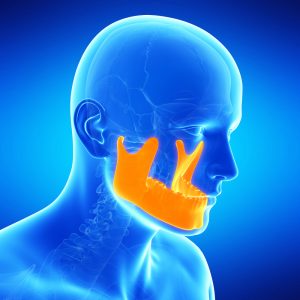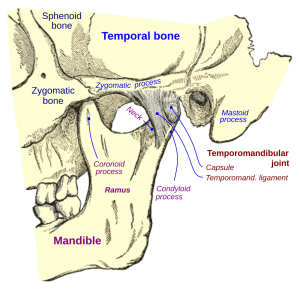Art Of Selection
The knowledge necessary to allow patient and dentist to select appliances based on patient needs and science of appliance.
What drives sale of appliances today:
- Appliances not taught dental school
- Guru thinking
- Need sale not need heal
- Demand quick fix
Appliances are for
- Restricted opening
- Grinding -clenching
- Jaw joint damage
- Muscle recruitment
- Trauma
- Protect teeth
- Destructive parafunction
Research appliance science:
- Adaptability to Bite changes
- Pain Reduction
- Appliance bias
- Durability
- Grind resistance
- Refinement for clench/grind wear
- What exam determines what appliance
- Appliance protects what structure
- Value
- Repairability
- Dependability
Choose a appliance by the following symptoms:
1. Sensitivity:
- Early sensitivity use bite guard
- Mod sensitivity use nightguard
- Progressive sensitivity use orthotic
2. Parafunction:
- Mild parafunction ---- Soft Biteguard & NTI
- Moderate parafunction----Hybrid & Hard Nightguard
- Moderate grinding clenching w/ high anxiety --- hard nightguard
- Destructive parafunction ---- orthotic
3. Damage level to jaw joint:
- Bite guard --- no joint damage & mild muscle damage
- Hybrid ---mild joint damage & moderate muscle damage
- Nightguards--- mod joint damage & mod. muscle damage
- Orthotic --- mod to severe joint damage & mod. to severe muscle damage
Appliances side effects
- Soft biteguard: moderate increase grinding,
- soft-hard Hybrid: slight increase grinding
- Hard- reduces clench/grind moderately
- Orthotic-only 1 of 10 tools destructive parafunction
Research Appliances before buying: Understanding side effects:
- What do you need, not what do you want
- Know side effects
- Ask purpose before purchase
- Research Appliance Science
- Does it need adjusting-refinement
- Can it adapt to changes in bite-teeth
- Can it be used with braces
- Is it adequate for my level grinding-clenching
- Can it help my restricted opening
I am sorry dentistry let’s public down in world appliances. Dentist are only 1 source of appliance knowledge and they have limited knowledge of appliances. Most of dentist knowledge is base on weekend course of a particular guru of particular appliance. One treatment fits all philosophy, make patient fit the appliance not the appliance selected to fit patients needs.
Please understand I am not negative toward any particular appliance, as long as it does not hurt patient. It is a complex science and it hard keep up with all of it. Dentist fall prey to believing one source of information and does not look behind it for the science because we have little time today for education.
Appliances options for minor damage to TMD
1. Soft Bite guard
- Increase clenching significantly
- protects teeth
- Used mild parafunction
- bulky
- decrease airway
- not retainer
2. NTI (Bite Guard)
- partial coverage
- long term causes bite changes
- decrease muscle power
- never use destructive bruxer
- anterior button
3. Soft-hard bite guard (hybrid)
- Can’t reline for crown & bridge
- Make new one every time change bite
- Slight increase Clenching
- Used mild to moderate parafunction
- ARS (worn 24/7)
1) major changes bites
2) creates expensive braces or reconstruction
3) sets condyle on slippery incline eminence
4) unstable bite (precarious-tenuous)
5) causes muscle brace condyle out socket - Hard nightguard
1) breaks
2) must adapt crowns
3) needs resurface 5 yr,
4) dogs love chew up-destroy
Appliance options for moderate damage
1. Nightguard
- Design: full coverage, hard throughout, accuracy varies
- Provides better bite artificially
- Clenching increases slightly
- Spears-Dawson-Pankey training for nightguards
2. Orthotic
- Appliance used w/ chewing system orthopedics
- Appliance accuracy training is 2-3 years as resident
- Design: full coverage, hard throughout, highly accurate, flat post plane, anterior guidance
- Used for
i) Restricted opening
ii) Osteoarthritis
iii) Destructive parafunction
iv) Chronic pain
v) Trauma or High Anxiety - Orthotic is not stand-alone appliance for moderate jaw joint damage, it requires chewing system orthopedics to effectively manage your jaw pain.
Caution: Never use NTI-Biteguard-ARS on Destructive Grinders
- Increase pain-breaks-wears out year-super/erupt teeth-change bite
- Can cause expensive bite changes
- Joints cannot handle excessive power
- Reduces grinding only slightly
- Disappointed patient
- Parafunction requires multiple tools to manage
- No appliance alone can handle this destructive disease
Sources of appliance training:
- Dental school
- Sales literature
- Pankey-Dawson-Spears
- Orofacial Pain Residency
- Internet puff n fluff
- Social expert
- Self appointed Guru
Dentist appliance training:
- Side effects are not reported by company
- Dental school teach only soft appliance
- Dentist are so busy that they can’t keep up science appliances
- Parafunction is not considered a disease
- Appliances are not under FDA or any agency
- Appliances are sold, not prescribed by science
- “One appliance fit all”
- Patient fits “my”appliance, not appliance fits patient
Appliances increase clenching & grinding:
- Soft Biteguard
- Hybrid: Soft - Hard Nightguard
Facts about appliances
- No appliance fixes “TMD”.
- Soft biteguards treat teeth
- Hard appliances treats muscles & minor jaw joint
- Orthotic treats destructive parafunction & moderate damage joint
Appliance Side Effects: ARS & NTI: Can changes bite



